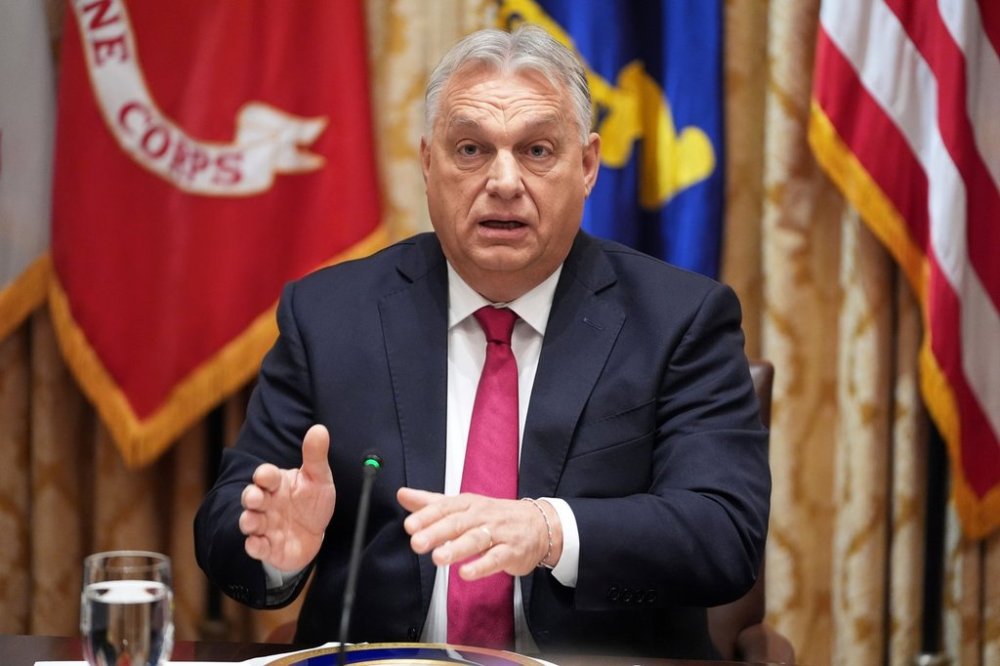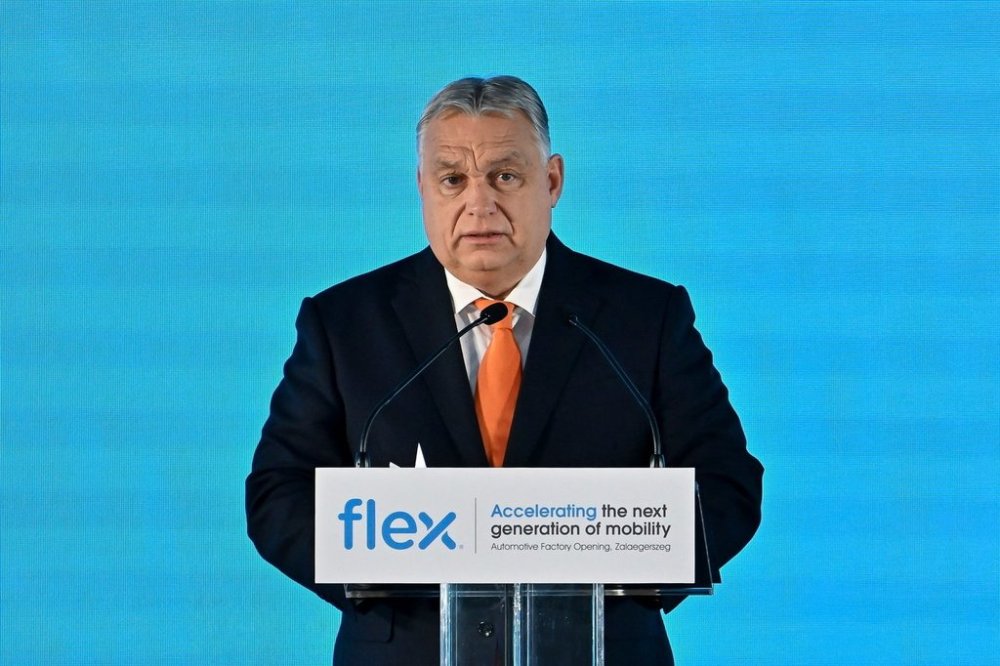Hungary’s Viktor Orbán to meet Russia’s Vladimir Putin in Moscow for energy talks
Advertisement
Read this article for free:
or
Already have an account? Log in here »
We need your support!
Local journalism needs your support!
As we navigate through unprecedented times, our journalists are working harder than ever to bring you the latest local updates to keep you safe and informed.
Now, more than ever, we need your support.
Starting at $15.99 plus taxes every four weeks you can access your Brandon Sun online and full access to all content as it appears on our website.
Subscribe Nowor call circulation directly at (204) 727-0527.
Your pledge helps to ensure we provide the news that matters most to your community!
To continue reading, please subscribe:
Add Brandon Sun access to your Free Press subscription for only an additional
$1 for the first 4 weeks*
*Your next subscription payment will increase by $1.00 and you will be charged $20.00 plus GST for four weeks. After four weeks, your payment will increase to $24.00 plus GST every four weeks.
Read unlimited articles for free today:
or
Already have an account? Log in here »
BUDAPEST, Hungary (AP) — Hungarian Prime Minister Viktor Orbán is visiting Moscow for energy talks with Russian President Vladimir Putin, a rare step from a European leader while Russia’s war grinds on in Ukraine.
The trip to Moscow is the second since last year for Orbán, who is widely considered Putin’s closest partner among all European Union leaders. In comments to state media before departing for Moscow early Friday, Orbán said the focus of his talks with Putin would be Hungary’s continued access to “cheap Russian oil and gas,” resources that have come under sanctions by the U.S. government.
Hungary is one of only a few EU countries to continue importing large quantities of Russian fossil fuels, and has strongly opposed efforts by the bloc to wean its 27 member nations off Russian energy supplies. Earlier this month, Orbán traveled to Washington for a meeting with U.S. President Donald Trump where he succeeded in securing an exemption to sanctions the Trump administration placed on Russian energy companies Lukoil and Rosneft — an allowance Orbán said ensured Hungary’s continued energy security.

Before departing from Budapest Friday, Orbán said that following Hungary’s exemption from U.S. sanctions, “now all we need is oil and gas, which we can buy from the Russians. I am going there to ensure Hungary’s energy supply at an affordable price both this winter and next year.”
Orbán has long argued Russian energy imports are indispensable for his country’s economy, and that switching to fossil fuels sourced from elsewhere would cause an immediate economic collapse — a claim some critics dispute. As the rest of Europe has gradually cut off Russian energy, Hungary has maintained and even increased its imports, and argued against an EU plan to eliminate all Russian fossil fuels by the end of 2027.
The Trump administration has said it is seeing signs that its sanctions on major Russian oil producers are crimping the economic engine that has allowed Moscow to continue to fund its war in Ukraine. Prices for Russian oil have plunged as major Indian and Chinese buyers moved to comply with U.S. sanctions before they went into effect last week, according to a senior Treasury Department official.
Meanwhile, Trump last week released a plan for ending the nearly four-year war. The 28-point proposal heavily favored Russia, prompting Ukrainian President Volodymyr Zelenskyy to quickly engage with American negotiators. European leaders, fearing for their own future facing Russian aggression, scrambled to steer the negotiations toward accommodating their concerns.
Trump said Tuesday that his plan to end the war had been “fine-tuned”, and that he’s sending envoy Steve Witkoff to Russia to meet with Putin and Army Secretary Dan Driscoll to meet with Ukrainian officials. He suggested he could eventually meet with Putin and Zelenskyy, but not until further progress has been made in negotiations.
Putin said Thursday that U.S. officials are expected in Moscow “in the first half of” next week, and that it “apparently” will be Witkoff. The Russian president himself will travel to India on Dec. 4-5 for talks with Indian Prime Minister Narendra Modi, the Kremlin said Friday.

Kremlin spokesman Dmitry Peskov on Friday refused to announce a date for Witkoff’s visit, saying only that the Kremlin will announce it “in due time.” He said that the “main parameters” of the peace plan, revised during Ukraine-U.S. talks in Geneva last weekend, were relayed to Russia, and there will be “a discussion in Moscow” next week.
In other developments, Russia’s Defense Ministry reported Friday that its air defenses intercepted 136 Ukrainian drones over a number of Russian regions and the annexed Crimea overnight. Damage to cars, residential buildings and houses was reported by authorities in the Rostov and Voronezh regions near the border with Ukraine.
